Did you know that black cabbage is a nutrient-rich vegetable that offers a wide range of health benefits?
Often referred to as one of the “winter greens,” black cabbage belongs to the cruciferous vegetable family and is known for its robust flavor and versatile culinary applications. But it’s not just its taste that makes black cabbage stand out—it’s also an antioxidant powerhouse packed with essential nutrients.
Key Takeaways:
- Black cabbage is a nutrient-rich vegetable with numerous health benefits.
- It is low in calories and high in vitamins C and K, fiber, and antioxidants.
- Consuming black cabbage may help reduce inflammation, support immune function, promote digestive health, and contribute to a healthy heart.
- Black cabbage can be incorporated into a variety of recipes, making it a great addition to your winter dishes.
- To enjoy the health benefits of black cabbage, seek out firm, fresh heads and store them properly for extended shelf life.
The Top 5 Health Benefits of Black Cabbage
Black cabbage, also known as Lacinato kale or Tuscan kale, is a powerhouse vegetable that offers an array of health benefits. Packed with essential nutrients and antioxidants, black cabbage can support various aspects of your well-being, from boosting your immune system to promoting heart and bone health. Let’s explore the top five health benefits of black cabbage:
1. Immune System Support
Black cabbage is rich in vitamin C, an essential nutrient known for its immune-boosting properties. Vitamin C helps strengthen your body’s natural defense system and plays a crucial role in fighting off infections and illnesses. By incorporating black cabbage into your diet, you can give your immune system the support it needs to stay strong and healthy.
2. Bone Health
Black cabbage is an excellent source of vitamin K, which is essential for maintaining healthy bones. Vitamin K works alongside other nutrients like calcium and vitamin D to promote bone mineralization and prevent conditions like osteoporosis. By consuming black cabbage regularly, you can support your bone health and reduce the risk of fractures and bone-related issues.
3. Cancer Prevention
Black cabbage belongs to the cruciferous vegetable family, known for their cancer-fighting properties. It contains compounds called glucosinolates, which can help protect against certain types of cancer, such as lung, breast, and colon cancer. These compounds work by activating detoxification enzymes and reducing inflammation, both of which play a crucial role in cancer prevention.
4. Heart Health
The rich antioxidant content in black cabbage can benefit your cardiovascular system. Antioxidants help reduce oxidative stress and inflammation, which are key contributors to heart disease. Consuming black cabbage regularly can support heart health, lower the risk of cardiovascular conditions, and promote a healthy heart.
5. Digestive Health
Black cabbage is a good source of dietary fiber, which is essential for maintaining a healthy digestive system. Fiber adds bulk to your stool, promotes regular bowel movements, and supports the growth of beneficial gut bacteria. By including black cabbage in your diet, you can improve digestion, prevent constipation, and support overall digestive health.
As you can see, black cabbage offers a wide range of health benefits. From supporting your immune system and bone health to preventing cancer, promoting heart health, and enhancing digestive health, this nutrient-rich vegetable can contribute to a well-rounded and healthy lifestyle.
Cooking Tips and Recipes for Black Cabbage
Black cabbage, also known as Cavolo Nero or Tuscan kale, is a versatile and nutrient-rich winter green. Its dark green leaves are packed with vitamins, minerals, and antioxidants, making it a great addition to any diet. If you’re looking for cooking tips and recipe ideas to incorporate black cabbage into your meals, I’ve got you covered!
Cooking Tips
Here are some helpful tips to keep in mind when cooking with black cabbage:
- Remove the tough stems: Before cooking, remove the tough stems from the black cabbage leaves. This will make them more tender and enjoyable to eat.
- Blanch before sautéing: To reduce the bitterness of black cabbage, blanch the leaves in boiling water for a few minutes before sautéing them. This will help retain their vibrant color and flavor.
- Pair with bold flavors: Black cabbage has a robust taste that pairs well with bold flavors. Consider using ingredients like garlic, lemon, chili flakes, or Parmesan cheese to elevate the taste of your dishes.
Recipe Ideas
Now that you know the cooking tips, here are some delicious recipes to try with black cabbage:
- Black Cabbage and White Bean Soup: This hearty soup combines black cabbage, white beans, tomatoes, and aromatic herbs for a satisfying winter meal.
- Black Cabbage Salad with Citrus Dressing: Toss thinly sliced black cabbage with segments of oranges, grapefruits, and a tangy citrus dressing for a refreshing and vibrant salad.
- Black Cabbage Stir-Fry: Sauté black cabbage with garlic, ginger, soy sauce, and sesame oil for a quick and flavorful side dish that pairs well with rice or noodles.
- Black Cabbage Pesto Pasta: Blend blanched black cabbage leaves, pine nuts, Parmesan cheese, garlic, and olive oil to create a delicious and nutritious pesto sauce. Toss it with your favorite pasta for a wholesome meal.
- Stuffed Black Cabbage Rolls: Fill blanched black cabbage leaves with a savory mixture of rice, mushrooms, onions, and herbs. Bake the rolls until tender and serve them with a rich tomato sauce.
These are just a few ideas to get you started. Feel free to get creative and experiment with black cabbage in your favorite recipes. Whether you’re making soups, salads, stir-fries, or pasta dishes, black cabbage adds a nutritious and flavorful twist to your meals.
Nutritional Profile of Black Cabbage
Black cabbage, also known as Tuscan kale or lacinato kale, is a nutrient-packed vegetable with a rich nutritional profile. It is not only delicious but also a healthy addition to your diet. Let’s take a closer look at the nutritional benefits of black cabbage:
Vitamins
Black cabbage is a great source of various vitamins, particularly vitamins C and K. Vitamin C is an essential nutrient that supports the immune system and helps the body absorb iron. It also acts as an antioxidant, protecting the body against damage from harmful free radicals. Vitamin K is important for blood clotting and bone health.
Here is the vitamin content of black cabbage per 100 grams:
| Vitamin | Amount per 100g |
|---|---|
| Vitamin C | 50 milligrams (83% of the daily recommended intake) |
| Vitamin K | 547 micrograms (684% of the daily recommended intake) |
Note: The values mentioned above are approximate and may vary depending on the specific variety and growing conditions.
Fiber
Fiber is an essential nutrient that promotes digestive health and keeps you feeling full and satisfied after meals. Black cabbage is a good source of dietary fiber, which aids in proper digestion and helps regulate bowel movements.
Antioxidants
Black cabbage is rich in antioxidants, including flavonoids and carotenoids, which help protect the body against oxidative stress and reduce inflammation. These compounds play a crucial role in maintaining overall health and may help prevent chronic diseases such as heart disease and certain types of cancer.
Note: The image above showcases the vibrant, dark green leaves of black cabbage.
Low-Calorie
If you’re watching your calorie intake, black cabbage is an excellent choice. With only around 30 calories per 100 grams, it is a low-calorie vegetable that can be enjoyed freely as part of a balanced diet.
Incorporating black cabbage into your meals not only adds a burst of flavor but also provides a wide range of essential nutrients to support your overall health and well-being. Try adding black cabbage to soups, stir-fries, salads, or smoothies for a nutritious boost.
Buying and Storing Black Cabbage
When it comes to buying delicious black cabbage, there are a few key things to keep in mind. Look for firm heads with fresh, crisp-looking leaves that are tightly packed and free from wilting or blemishes. Remember, pre-bagged black cabbage can save you time but may be slightly more expensive.
Before consuming your black cabbage, be sure to give it a good rinse with cold water, even if it’s labeled as “pre-washed”. This extra step helps ensure its cleanliness and freshness.
When it comes to storing black cabbage, it’s essential to keep it in optimal conditions to maintain its quality and extend its shelf life. Start by wrapping the cabbage tightly in plastic and placing it in the crisper drawer of your refrigerator. This will help keep it fresh for up to two weeks.
Once you’ve cut into the black cabbage, it’s recommended to use it within 2-3 days to prevent any loss of freshness. If you find yourself with cooked black cabbage, be sure to refrigerate it within two hours and consume it within 3-5 days.
If you have an abundance of black cabbage and want to prolong its shelf life, freezing is a great option. Simply package the fresh or cooked black cabbage in airtight containers or freezer bags and store them in the freezer. This can extend its shelf life up to an impressive 10-12 months, allowing you to enjoy black cabbage all year round.
By following these buying and storing tips, you can ensure that your black cabbage maintains its freshness and quality, providing you with a nutritious and versatile ingredient for your culinary creations.
The Historical and Cultural Heritage of Black Cabbage
Black cabbage, also known as Tuscan kale or cavolo nero, has a fascinating historical and cultural background that stretches back over two millennia. Its roots can be traced back to northern Spain, where it was first cultivated. From there, black cabbage made its way to coastal communities across Europe, where it became a dietary staple.
This versatile vegetable has been an integral part of various culinary traditions, adding its unique flavor and texture to a wide range of dishes. From hearty soups and stews to pickled preparations and refreshing salads, black cabbage’s culinary impact is undeniable.
In many coastal towns, black cabbage is deeply intertwined with the local agriculture, symbolizing human ingenuity and adaptation to the harsh coastal conditions. The ability of black cabbage to thrive in challenging environments showcases its resilience and adaptability.
Furthermore, black cabbage has found its place in folklore, art, and literature, often representing endurance and survival against all odds. Its historical significance goes beyond the dinner table, providing insights into agricultural practices and human adaptation throughout history.
Exploring the rich tapestry of black cabbage’s historical and cultural heritage reveals the fascinating interplay between food, tradition, and human civilization. Its enduring popularity and significance make it a cherished part of our culinary experience.
Folklore and Symbolism
“Black cabbage, a testament to resilience and survival, weaves itself into the fabric of local folklore, art, and literature. Its dark green leaves echo nature’s ability to endure even in the harshest conditions, inspiring stories and captivating imaginations.”
Culinary Traditions
Black cabbage’s versatility is evident in its diverse use in culinary traditions across different cultures. Here are some popular black cabbage dishes:
| Cuisine | Dish |
|---|---|
| Italian | Ribollita (Tuscan bread soup) |
| Portuguese | Caldo Verde (kale soup) |
| Spanish | Garbanzos con Acelgas (chickpeas with Swiss chard) |
| French | Poitou Charentes (braised black cabbage with ham) |
These are just a few examples of the many ways black cabbage is celebrated and incorporated into traditional cuisine.
Art and Literature
“Art and literature have immortalized the historical and cultural significance of black cabbage. It has been a subject of paintings and a muse for writers, capturing its essence and the human connection to nature in vivid detail.”
The historical and cultural heritage of black cabbage underscores its enduring place in our hearts and on our plates. Exploring its roots and symbolism adds depth and meaning to our culinary experiences.
The Ornamental and Aesthetic Value of Black Cabbage
Black cabbage is not just a culinary delight; it also adds ornamental value to gardens. Its vibrant colors and architectural form make it visually appealing.
As temperatures dip, the leaves of black cabbage blush with shades of red, pink, and white, creating a colorful display. Black cabbage’s large, wavy leaves add a sculptural element to garden beds and containers. It stands out during the winter months when other plants are dormant, providing seasonal interest.
Black cabbage also attracts pollinators, such as bees and butterflies, making it a wildlife haven. Its uniqueness and rarity contribute to its conservation value.
Beyond the garden, black cabbage can be used in floral arrangements, showcasing its ornamental appeal.
Black Cabbage’s Medicinal Properties
Black cabbage, known botanically as Brassica oleracea, has a long history of traditional medicinal uses. This nutrient-rich vegetable has been valued for its therapeutic properties, offering relief for various ailments. From soothing sore throats to alleviating toothaches and treating constipation, black cabbage has been utilized for its potential health benefits.
Modern research has shed light on the medicinal properties of black cabbage, focusing on its antioxidant content and potential anti-inflammatory, antiseptic, and insecticidal properties. Studies have shown that black cabbage contains compounds that may offer health benefits, including pain relief and sedation.
However, it is important to exercise caution when utilizing black cabbage for medicinal purposes. The potency and safety of its medicinal properties can vary, and it is crucial to consult healthcare professionals before incorporating black cabbage into your wellness routine.
“The medicinal properties of black cabbage make it an intriguing candidate for further exploration. However, it is vital to seek guidance from healthcare professionals who can provide personalized advice based on individual health conditions and medication interactions. As with any herbal remedy, an informed and cautious approach is crucial.”
While black cabbage’s medicinal properties hold promise, more research is needed to fully understand the potential benefits and safety of utilizing black cabbage for medicinal purposes. Despite its historical significance and anecdotal evidence, it is advisable to rely on evidence-based research and professional guidance when considering black cabbage for its medicinal properties.
Conclusion
Black cabbage is a remarkable vegetable that offers a plethora of health benefits. Its nutrient-rich profile supports immune function, improves bone health, reduces the risk of cancer, and promotes a healthy heart. Incorporating black cabbage into your cooking can be as simple as steaming or sautéing it, or you can explore more creative recipes like coleslaw or fresh spring rolls.
Furthermore, black cabbage holds historical and cultural significance, adding depth to its appeal. It has been cultivated for centuries, symbolizing human ingenuity in agriculture and adaptation to harsh conditions. Its ornamental value shines through its vibrant colors and architectural form, making it visually appealing and a delightful addition to garden design.
While black cabbage’s medicinal properties show promise, further research is needed to fully understand its potential benefits. It has a history of traditional uses and contains compounds that may offer health benefits, but it is essential to consult healthcare professionals before using black cabbage medicinally.
In conclusion, black cabbage is a versatile and extraordinary vegetable that can enhance both the flavor and nutritional value of your meals. Whether you enjoy it for its health benefits, culinary versatility, historical significance, ornamental value, or potential medicinal properties, black cabbage is a true gem in the world of vegetables.

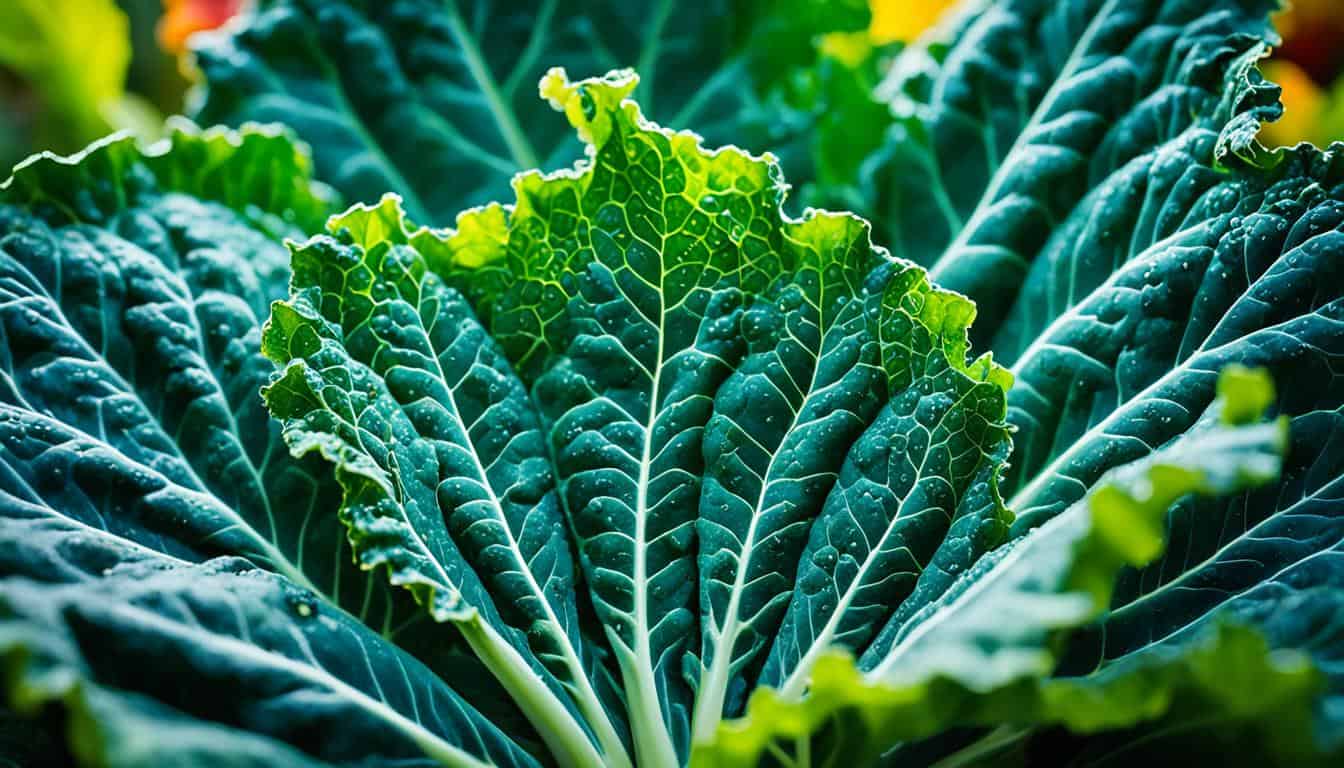
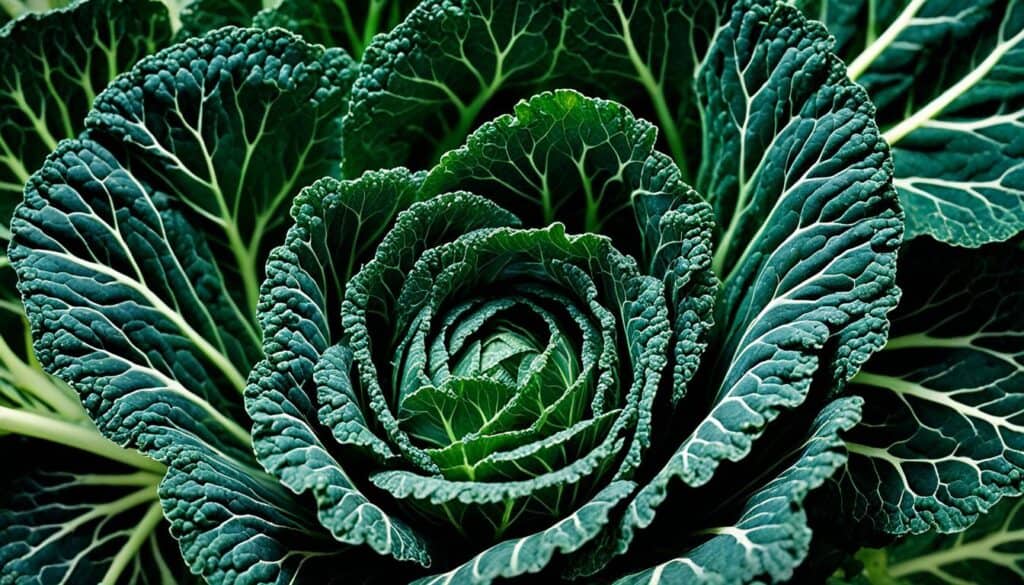
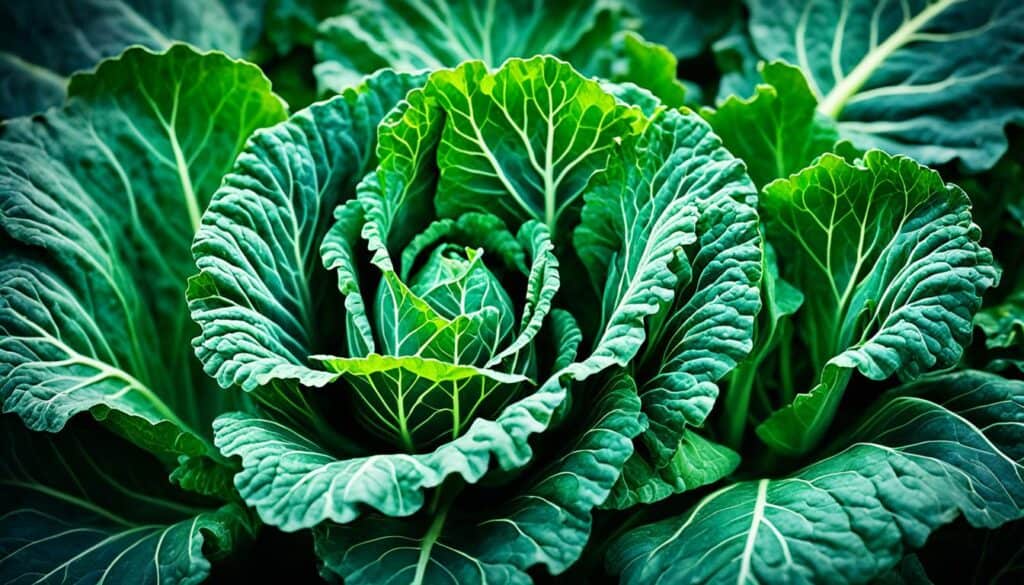
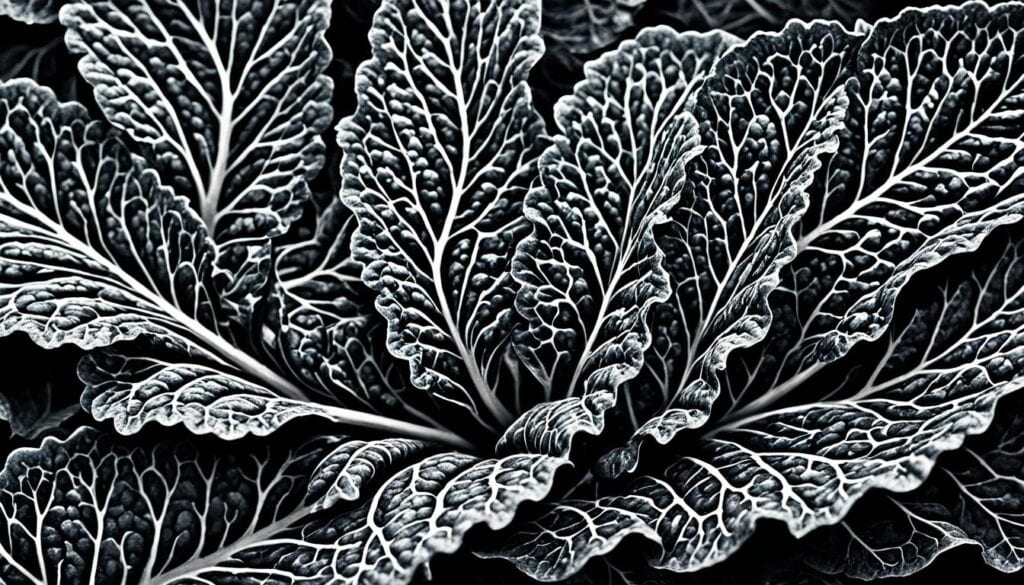
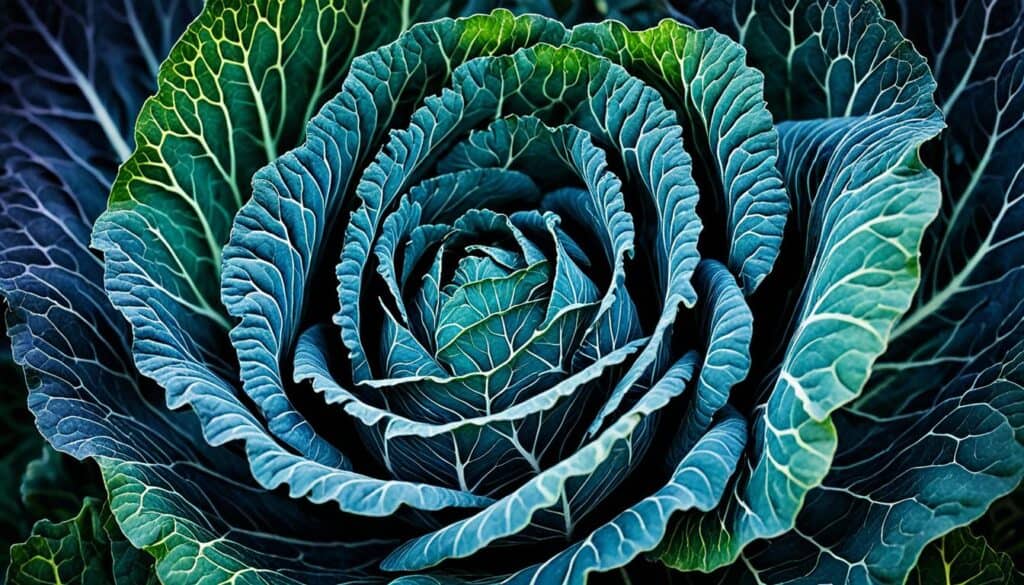



Leave a Reply